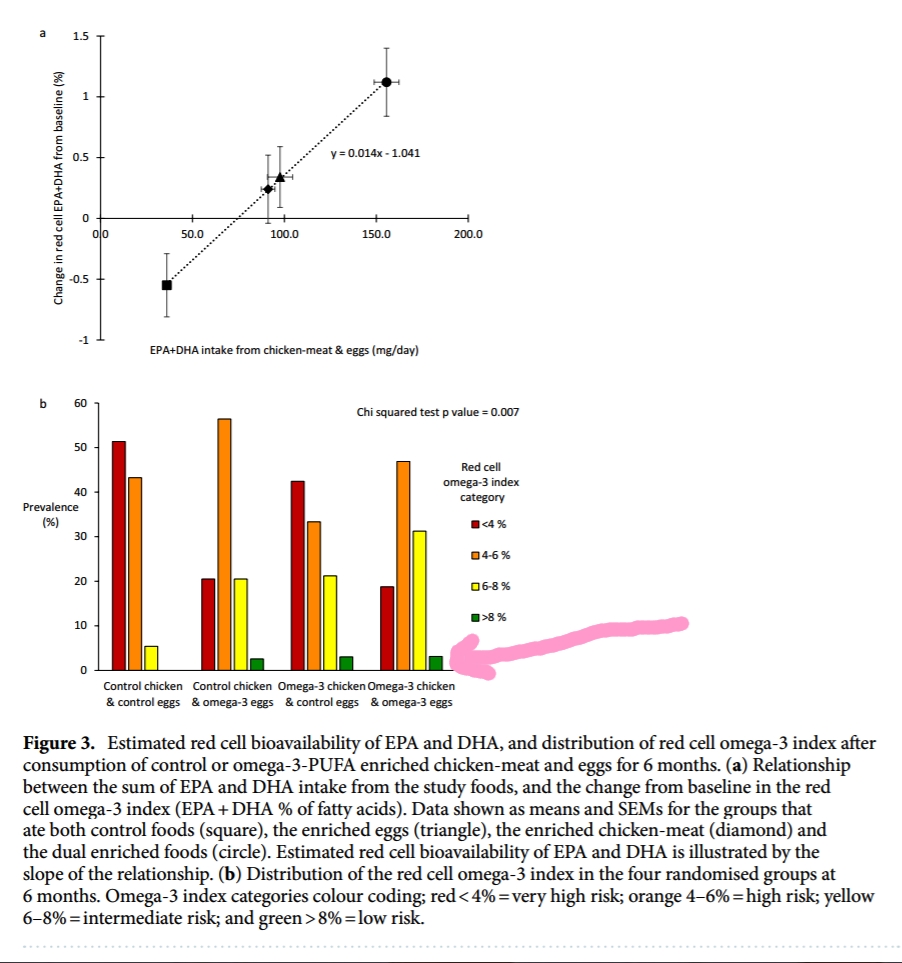Omega-3 index and blood pressure responses to eating foods naturally enriched with omega-3 polyunsaturated fatty acids: a randomized controlled trial
Alice V. Stanton, Scientific Reports volume 10, Article number: 15444 (2020)
Diets low in seafood omega-3 polyunsaturated fatty acids (PUFAs) are very prevalent. Such diets have recently been ranked as the sixth most important dietary risk factor—1.5 million deaths and 33 million disability-adjusted life-years worldwide are attributable to this deficiency. Wild oily fish stocks are insufficient to feed the world’s population, and levels of eicosapentaenoic acid and docosahexaenoic acid (DHA) in farmed fish have more than halved in the last 20 years.
Here we report on a double-blinded, controlled trial, where 161 healthy normotensive adults were randomly allocated to eat at least three portions/week of omega-3-PUFA enriched (or control) chicken-meat, and to eat at least three omega-3-PUFA enriched (or control) eggs/week, for 6 months. We show that regular consumption of omega-3-PUFA enriched chicken-meat and eggs significantly increased the primary outcome, the red cell omega-3 index (mean difference [98.75% confidence interval] from the group that ate both control foods, 1.7% [0.7, 2.6]). Numbers of subjects with a very high-risk omega-3 index (index < 4%) were more than halved amongst the group that ate both enriched foods. Furthermore, eating the enriched foods resulted in clinically relevant reductions in diastolic blood pressure (− 3.1 mmHg [− 5.8, − 0.3]).
We conclude that chicken-meat and eggs, naturally enriched with algae-sourced omega-3-PUFAs, may serve as alternative dietary sources of these essential micronutrients. Unlike many lifestyle interventions, long-term population health benefits do not depend on willingness of individuals to make long-lasting difficult dietary changes, but on the availability of a range of commonly eaten, relatively inexpensive, omega-3-PUFA enriched foods.















